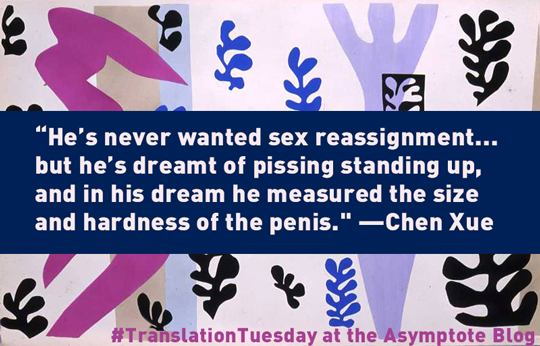This week at Asymptote, our Editors-at-Large report on book fairs, Annie Ernaux’s visit to India, and celebrations of International Mother Language Day all around the world. From the efforts of Trans activists and performance artists in Mexico to a recent multilingual anthology published by Olongo Africa, read on to learn more!
Alan Mendoza Sosa, Editor-at-Large, reporting from Mexico
The literary community in Mexico City has been vibrant and active in the first months of 2023. Between February 23–March 6, the Feria Internacional del Libro del Palacio de Minería took place in Mexico City. This forty-fourth edition of one of the biggest international book fairs in Mexico brought together writers, scholars, editors, and artists from all over the world. They gathered in the historic downtown to host readings, panels, and roundtables on literature, social sciences, and politics.
There were more than a hundred events, ranging from book presentations to movie screenings to workshops for children. In one panel, Asymptote contributor Tedi López Mills presented an edited anthology of her poetry, published by the National University of Mexico in its pamphlet series Material de lectura. The publication will bring López Mills’s poetry to a wider public. In another event, Cuban poet Odette Alonso moderated a talk with Lía García and Jessica Marjane, two Trans performance artists and organizers that have been at the forefront of the movement for Trans rights and recognition in Mexico. García and Marjane founded the National Network of Trans Youth, which has strengthened the community bonds among Trans young people in Mexico. García has acquired international recognition, having been invited to perform and read to institutions outside of Mexico, among them Harvard University and the University of Illinois’s Humanities Research Center.



